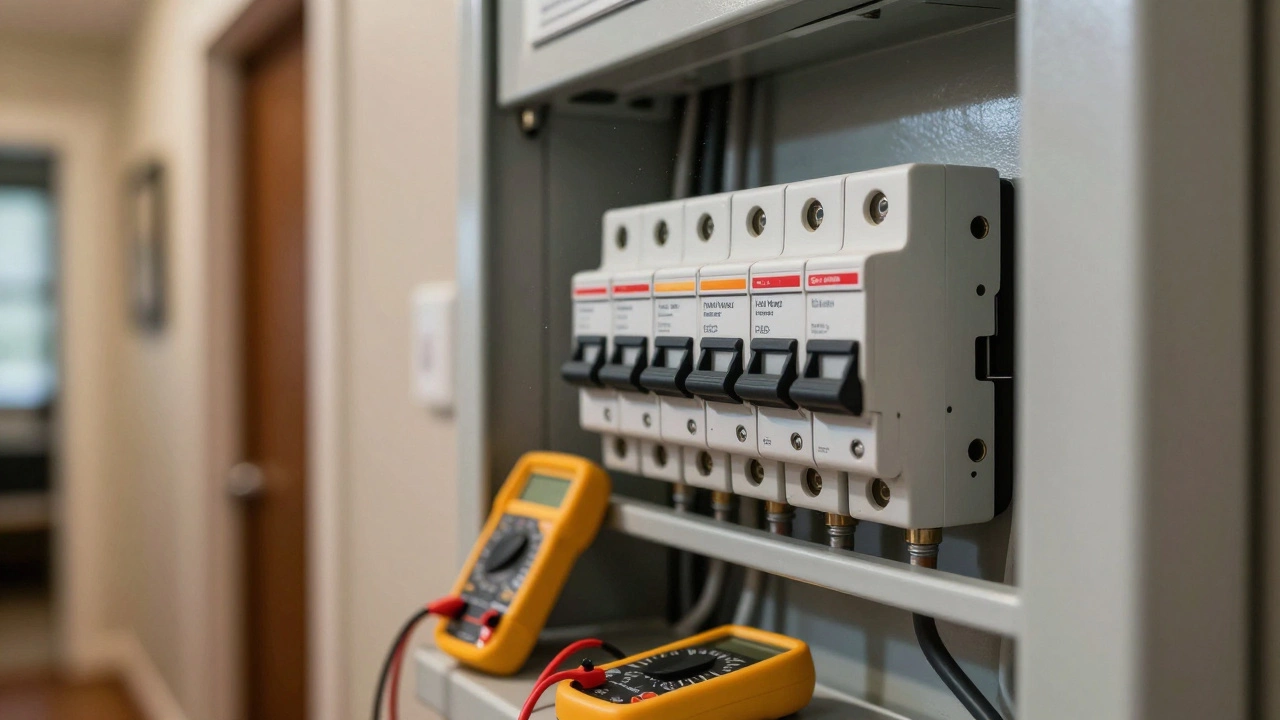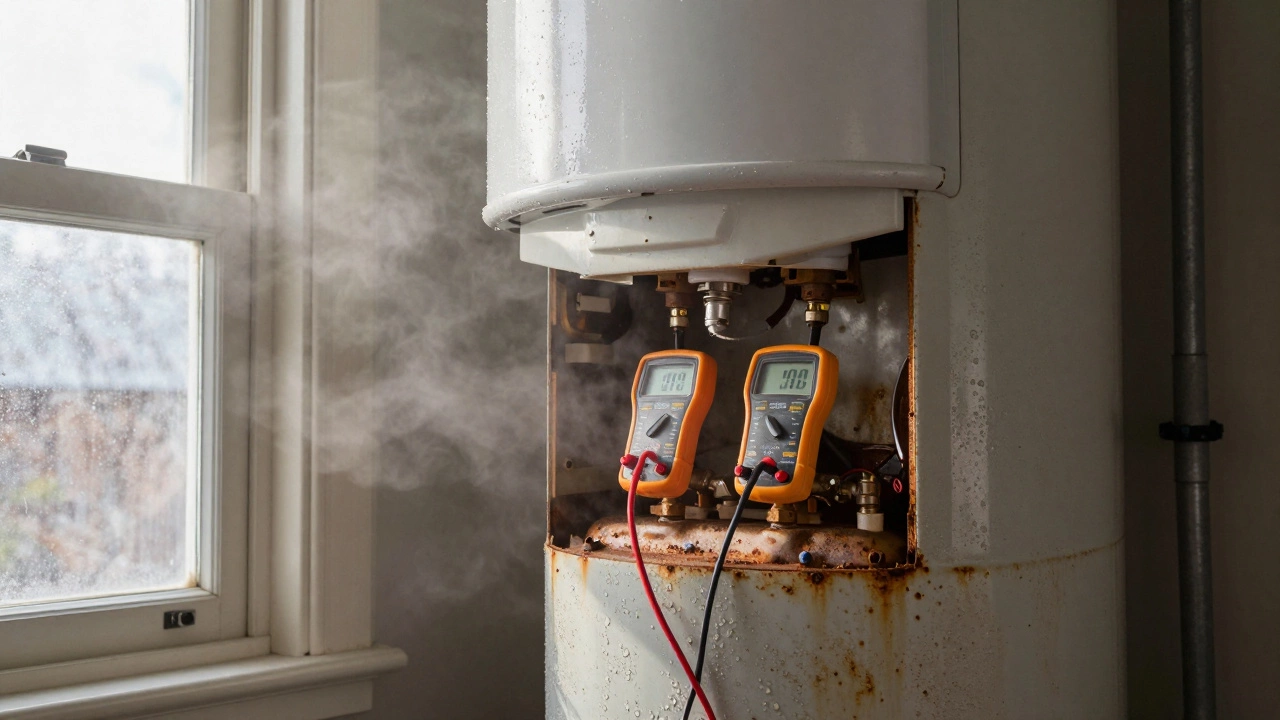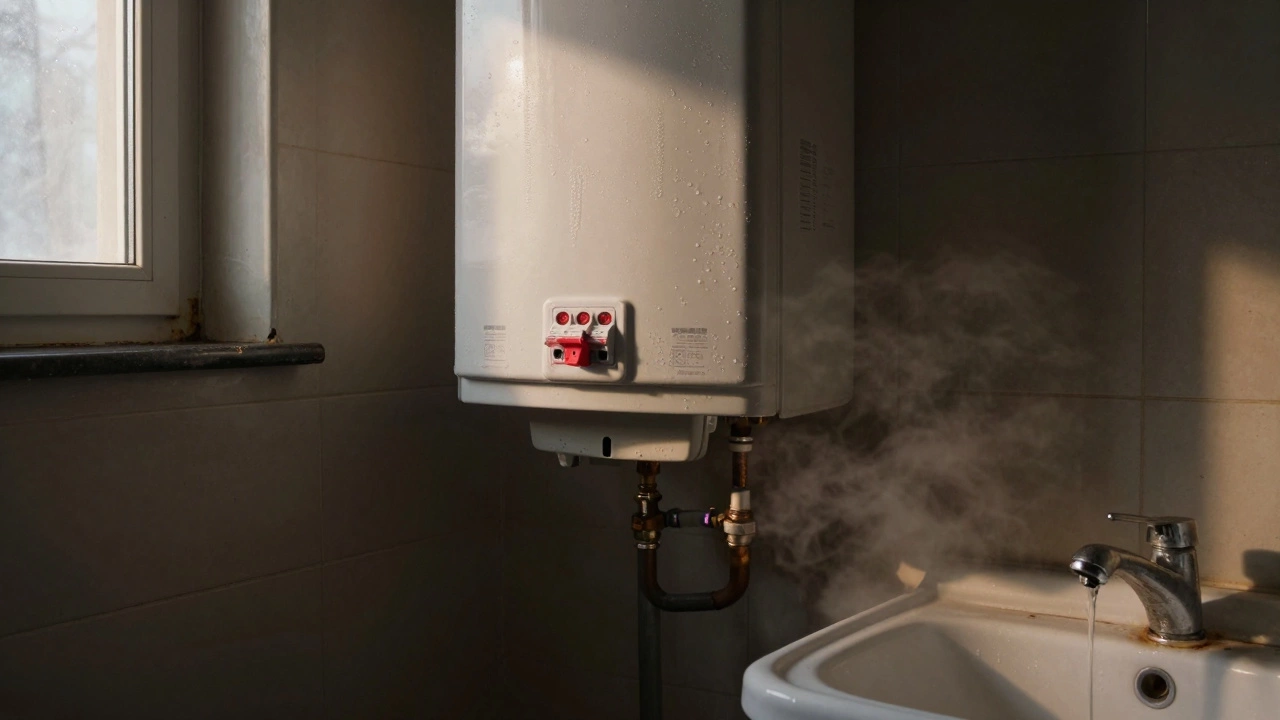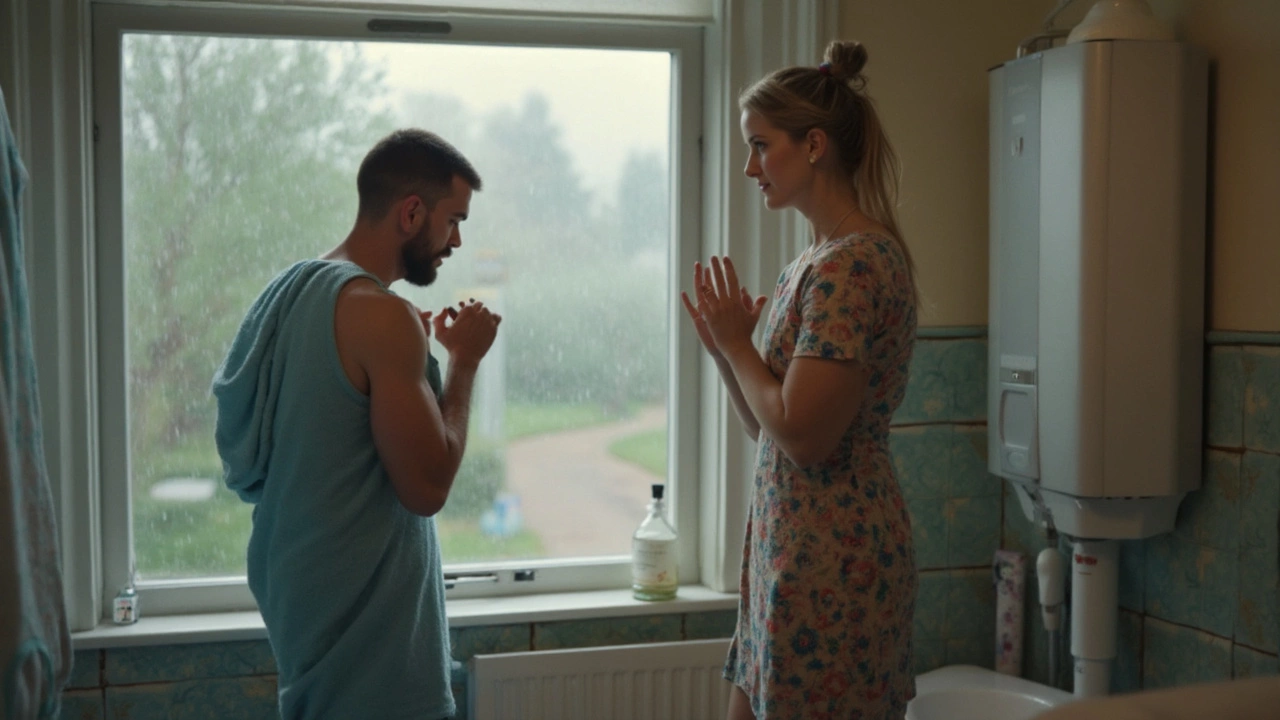
Your hot water heater won't kick on? It's often a simple fix-check the power, pilot light, thermostat, or sediment buildup. Learn how to diagnose and fix common causes before calling a plumber.
Waking up to cold taps is annoying, but most of the time you can sort it without a big hassle. Before you call anyone, try these quick checks. They take a few minutes and often pinpoint the problem.
First, make sure the water heater or boiler is actually getting power. Look at the fuse box or circuit breaker – a tripped breaker is a common cause. Flip it back on and see if the lights on the unit come on.
If you have a gas‑fed boiler, verify that the gas valve is open. A simple knob turn can restore fuel flow. If the gas smell is strong or you smell nothing at all, call a qualified engineer – gas issues are not DIY.
Most modern water heaters have a reset button. It’s usually a small, red or black button near the control panel. Press it once and wait a minute. If the heater starts heating, you’re done.
Many boilers display error codes on a small screen. Write down the code and look it up in the manual or on the manufacturer's site. Common codes point to a thermostat fault or a pressure problem. If the code says “pressure low,” you may need to add water to the system – the process varies, so follow the manual carefully.
Low pressure can stop a boiler from firing. Look for a gauge on the pipework; it should read between 1 and 1.5 bar when the system is cold. If it’s lower, you’ll need to top it up using the filling loop – most units have a lever you open briefly, then close.
Also, make sure the thermostat is set high enough. Sometimes a simple knob tweak from 35°C to 45°C makes a big difference.
Check around the boiler, pipes, and radiator connections. A wet spot usually means a leak, which can drop pressure fast. If you see ice on outdoor pipes in winter, they’re probably frozen. Turn on a faucet nearby to let water flow and melt the ice.
If the reset button doesn’t work, the error code stays the same, or you spot a leak, stop fiddling and call a qualified engineer. Same goes for any gas smell, repeated trips of the breaker, or if you’re not comfortable topping up the pressure.
A pro can test the heat exchanger, replace a faulty thermostat, or clean a blocked pump. Getting the right person saves you from bigger bills later.
Remember, regular servicing keeps these issues from popping up. A yearly boiler service checks the controls, pressure, and safety devices – it’s worth the small cost for peace of mind.
So next time you face a cold shower, run through these steps. Most of the time you’ll get heat back fast, and you’ll know exactly when to hand the job to an expert.

Your hot water heater won't kick on? It's often a simple fix-check the power, pilot light, thermostat, or sediment buildup. Learn how to diagnose and fix common causes before calling a plumber.

Your hot water heater stopped working suddenly? It could be a dead heating element, faulty thermostat, pilot light outage, or a leaking tank. Learn the most common causes and what to do next.

No hot water suddenly? Common causes include tripped breakers, pilot light outages, sediment buildup, or broken heating elements. Learn how to diagnose and fix it yourself before calling a pro.

Hot water suddenly going cold is more than just an inconvenience—it throws off your whole morning routine. This article uncovers the most common reasons your water heater stops working out of the blue. Expect straightforward guidance on what to check first, DIY fixes to try, and signs you need to call a professional. You'll also pick up helpful tips for preventing future breakdowns. Get ready to find answers instead of cold showers.